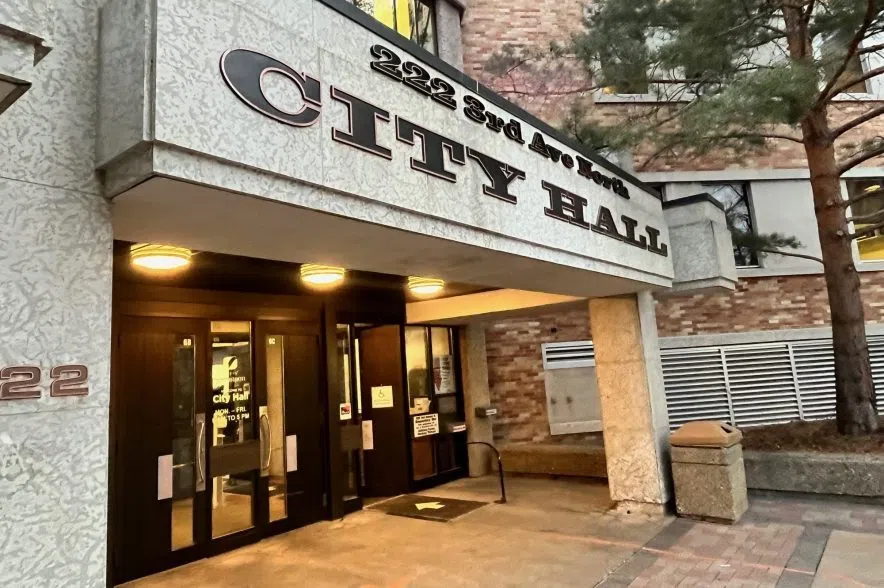After three days of budget deliberations, Saskatoon city councillors have trimmed about $6 million from a two-year, $40-million funding gap.
According to Clae Hack, the city’s chief financial officer, the gap for 2024 remains at $17.4 million. For 2025, the gap still sits at $16.9 million.
The trimming so far leaves property tax increases sitting at 5.94 per cent for 2024 and 5.42 per cent for 2025.
But it was slow going for much of the day Thursday, as debates continued over items like a motion from Coun. Bev Dubois to charge a $1 fee for online registrations to recover $11,500 for the Parks and Recreation Department.
That sometimes led to pointed comments from councillors asking questions or speaking, including Coun. Darren Hill.
“I will not be cut off when I’m asking questions,” he said.
As the meeting began, Mayor Charlie Clark joked about the meetings.
“The goal is Christmas Eve for sure, we want to be done,” said.
After the meeting wrapped up, Clark said it has been one of the more challenging budgets for council.
“I’m definitely reflecting on how we can potentially do budget differently in the future,” he said.
“Our council, we have our ups and downs but we’ve worked together for a long time. Almost all of our council, this is our seventh year together and we make the sausage in the public, as I say,” Clark added.
Council will resume its deliberations for a fourth day Friday with items including the Fire Department and Transportation budgets on the agenda. The police budget was passed during Tuesday’s session, and nearly $1.7 million of the funding gap was trimmed during Wednesday’s discussion.
Some city fees to increase
Not only will residents see property tax increases for 2024-25, they can also look forward to a whole host of fee, admission or rate increases for most city-related business and facilities.
During deliberations Thursday, Lynne Lacroix — the City of Saskatoon’s GM of recreation and community development — delivered the budgets for both Urban Planning and Recreation and Culture.
“Our typical process in budget is to take a look at how our expenses are rising and when our last fee increases were presented. Each year with budget, we consider whether some fees need to be increased to help offset some of the rising costs,” she said.
The business and recreational fees range from an increase to home- or commercial-based businesses to a variety of taxi-related fee increases, to fee increases for arena ice time, leisure centres and admission to city-run facilities like the Forestry Farm and Zoo.
Property owners looking to build additions to their homes — like garages or pools — will see inspection fee increases. Developers of commercial and residential properties will also find their costs going up for city-related permits.
Lacroix said most of the fee increases are done on a cost-recovery basis.
“(We’re) getting back what we’re putting in. Any surplus at the end of the year, it gets transferred into what’s called a Stabilization Reserve,” she added. “So in a year where we maybe don’t make as much as we projected but still have the same expenses, that reserve is used to offset any deficit we might have at year end.”
For those who can’t afford the costs of increased fees for the city’s leisure centres or other facilities, Lacroix said there are some programs that are subsidized.
“The city also has our leisure access program for low-income families and individuals where they qualify for a full leisure card for a full year,” she said. “So if cost is a barrier, reach out to us. There are a multitude of low-cost, no-cost programs.
“Where new programs get introduced, council will often explore subsidization to some of those programs.”
Some of the new fees won’t be introduced until the latter part of 2024, and will extend to 2026.
More information on the parks and recreation fee increases can be found here.
Information on business fees and building standards fees can be found here.
Details about licensing and permitting are available here.











